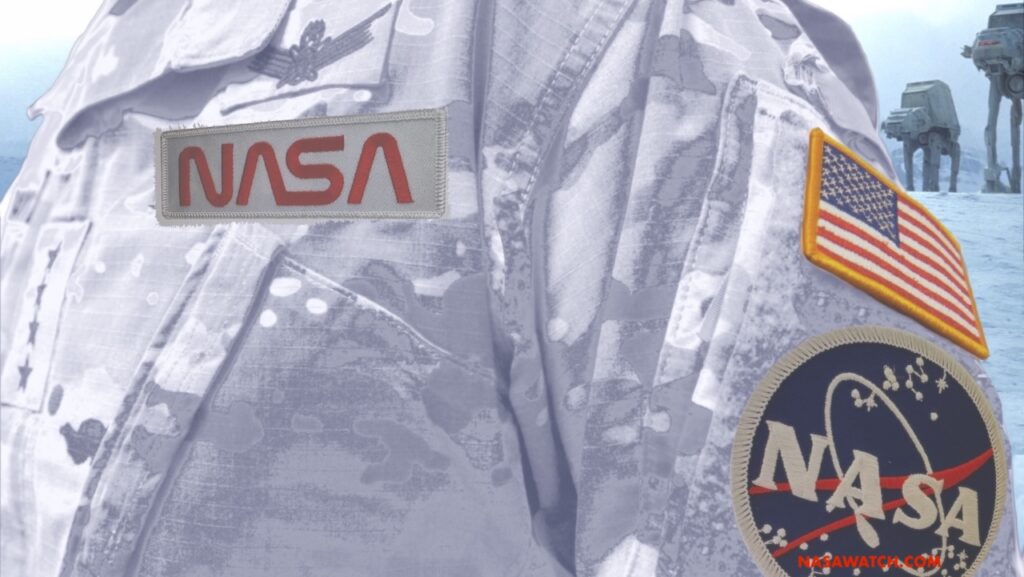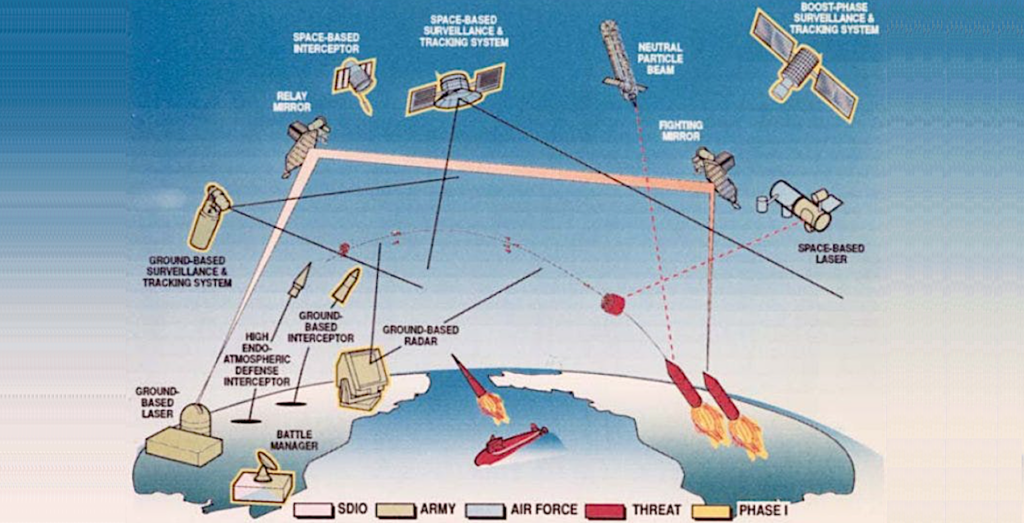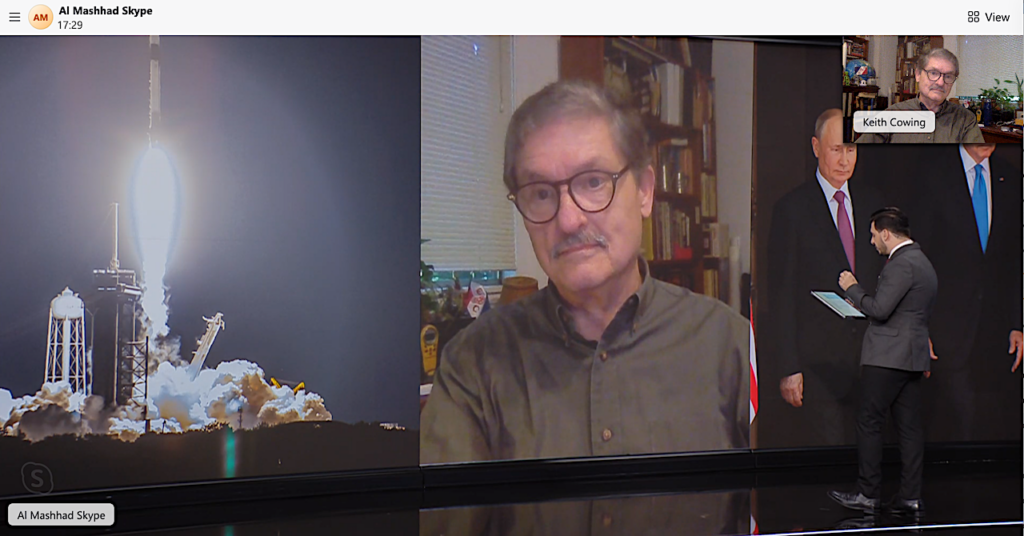Mike Griffin Is Not Done Screwing Things Up Yet

The Pentagon’s Technology Chief Is an Utter F*cking Fool, Daily Beast
“Ignorance is nothing new to Michael Griffin. He used to administer NASA during the George W. Bush administration, where he somehow managed to prove himself to be worse than a climate-change denier. During a 2007 interview with NPR, Griffin advanced the novel position that sure, humanity was the engine of climate transformation, but to do anything about it was a worse form of hubris.”









Slow news day, eh… ;
Daily Beast, really, the same that NASA Watch sourced for the “child sex slaves on Mars” in June ‘17… so this is now a credible source to quote again(!) in order to acost Griffin? Any ship in a port…(?)
I am disappointed, and still hope that NASA Watch would maintain high repute, instead of reposting click-bait of the smut posted on Daily Beast. Longing for better days of investigative reporting. New low.
No one is forcing you to read NASAWatch.
I don’t like the source either, but they are right that Michael Griffin is not a person that should be in any post like this. Griffin’s comments do show an ignorance about the history of the defense department. I consider the Daily Beast a broken clock that might be right twice a day by accident. After a failure like his leadership of NASA and the path he set us on, he should never have any significant decision making position again.
From being on the wrong side of climate change to recommending Ares I and Ares V as NASA’s transportation architecture to the Pentagon’s Technology Chief. What could possibly go wrong?
Dr. Griffin is proof that scientists make poor NASA Administrators while non-scientists like Administrator Bridenstine make good administrators because they don’t second guess the engineers and scientists at NASA. NASA would have been far better off if Administrator O’Keefe had stayed on to implement VSE.
and no pesky Hubble service mission.
God save us from over-educated engineers who imagine themselves to be scientists.
Or scientists who image themselves to be engineers.
We aren’t all bad. The real problems I’ve seen are engineers who don’t approach problems in a scientific way and scientists who think engineering is below them.
When something goes wrong on a spacecraft, it actually is productive to apply a scientific method. Come up with a hypothesis about what’s wrong, collect evidence to verify or refute that hypothesis, etc. But all too often, the engineers just want to prove they have satisfied the formal requirements and the problem must be someone else’s fault. I really hate it when the electrical engineer and the flight software guy are just pointing fingers at each other and saying “Not me, it must be him.”
At the same time, scientists aren’t always what I’d call helpful. By _not_ considering the engineering, they often ask a mission to do something physically impossible and don’t understand why the engineers complain. (I know someone who was in a mission proposal similar to the MAVEN mission at Mars. He actually asked if they could find some way to send it to Venus, observe there, and then go on to Mars.) I also know of scientists who refuse to think or learn about the engineering details because they think that shouldn’t be their job. Guess what? Building and operating instruments really is a scientist’s job.
I guess that’s a bit harsh, but I really think we shouldn’t criticize people who try to go beyond a narrow specialty. Being conversant in many fields is actually useful. Fooling yourself into think that makes you an expert might not be, but that’s different from having some breath of understanding.
That is what system engineers are SUPPOSED to be for (when they are utilized properly). They don’t have to be total experts in one particular field. But, having some knowledge of many fields, they can ask the specialists for their inputs and coordinate the resulting efforts. Unfortunately, back in the day, systems engineers were sometimes ignored by specialist engineers!
Absolutely. A good systems engineer is worth her weight in gold. Actually more, since her weight in gold is probably only $3 million or so… But you also need a project manager, a science team and an engineering team who listen to the systems engineer. That means a lot of people willing to look beyond their specialty. The systems engineer can do most of the work but everyone else has to listen and be able to understand the results.
I think that was one of the secrets of the Project Apollo era, not only did the engineers and scientists come from a variety of backgrounds, they also had a lot of spacecraft fail in the early days. Their varied backgrounds opened them to looking at things from a broader perspective and demonstrated the need to work together. In terms of science, all the early researchers had extensive experience with Earth based science first and so were less isolated from their Earth science counterparts then the current generation of planetary/astrobiologists seem to be.
“they also had a lot of spacecraft fail”
Mr. Musk frequently makes this point and indeed SX still operates similarly.
Nowadays the knowledge base on rocketry is sufficient, I suppose, to assure success from a computer designed machine (aviation similarly). On the other hand, failure still teaches in other cases, like parachutes. (not the current mission, please).
I take umbrage when someone calls me a “rocket scientist”! I was an “acid-on-the-hands” rocket ENGINEER! 😉 If it had ever come up and somebody told me to stop thinking like an engineer and think like a manager, I would have told them where to stick it!
To be honest, a friend was once asked if she thought she’d be a good manager, since scientists usually aren’t. She had a better answer than most people. Between college and graduate school, she managed a pub somewhere in England. That turned out to be more convincing than anything about experience with flight missions would have been.
The original plan was to have companies offer a series of shuttle replacements with a competition to narrow it down to a couple that were then to ride on private rocket? He ripped that idea up for his Saturn IB/V on steroids.
You must mean the Orbital Space Plane Program. But from what I remember, NASA would have down-selected to a single vehicle and operated it in conjunction with the space shuttle. It’s possible that it would have gone with a cost plus style contract and ended up no better than CEV.
At least with OSP, the requirements were more narrow than for CEV (which was intended for “deep space”), so it might have ended up actually flying, if its project management was good.
https://en.wikipedia.org/wi…
Boeing’s CST-100 is similar to one of the design’s they proposed for the OSP, and it’s launching on the Atlas V which was the intent of the OSP. The Dream Chaser also has it’s roots in another proposed OSP design. Since it was based on proven technology, and existing launch vehicles, the OSP could well have succeeded if not replaced by Dr. Griffin’s Ares I.
Having watched most of the regular participants herein stake a position on the engineering vs scientist issue, I can’t help but think about Mr. Musk. He has repeatedly made the point that anyone sufficiently educated is capable of a place at the table with the engineers and scientists. Moreover, he’s proven it.
There’s hope for the rest of us who fall into some sort of “arm-chair” appellation or other.
In the case of Mr. Musk, he’s shown that sufficiently abstracted questions (by experts, of course) can be profitably assessed and analyzed by the aforementioned interested party.
That concept, applied to politics, is central to the American Experience. From time to time, though, we learn there are flaws.
Every nature is contented with itself when it goes on its way well; and a
rational nature goes on its way well, when in its thoughts it assents
to nothing false or uncertain, and when it directs its movements to
social acts only, and when it confines its desires and aversions to the
things which are in its power, and when it is satisfied with everything
that is assigned to it by the common nature. — Marcus Aurelius
There may very well be plenty of critics whose views on Mr. Griffin and the defense policies of the USA are worth hearing, but I doubt that this foul-mouthed liberal punk writing for the Daily Beast is the optimum choice.
Just out of morbid curiosity, how much authority does the Undersecretary of Defense for Research and Engineering actually have? Is Dr. Griffin actually in a position to screw anything up? I mean worse than the military research, development and procurement system already is. Or should I be more concerned with whoever President Trump picked as our ambassador to Luxembourg? (Especially since they do seem to be investing in space industry and resources.)